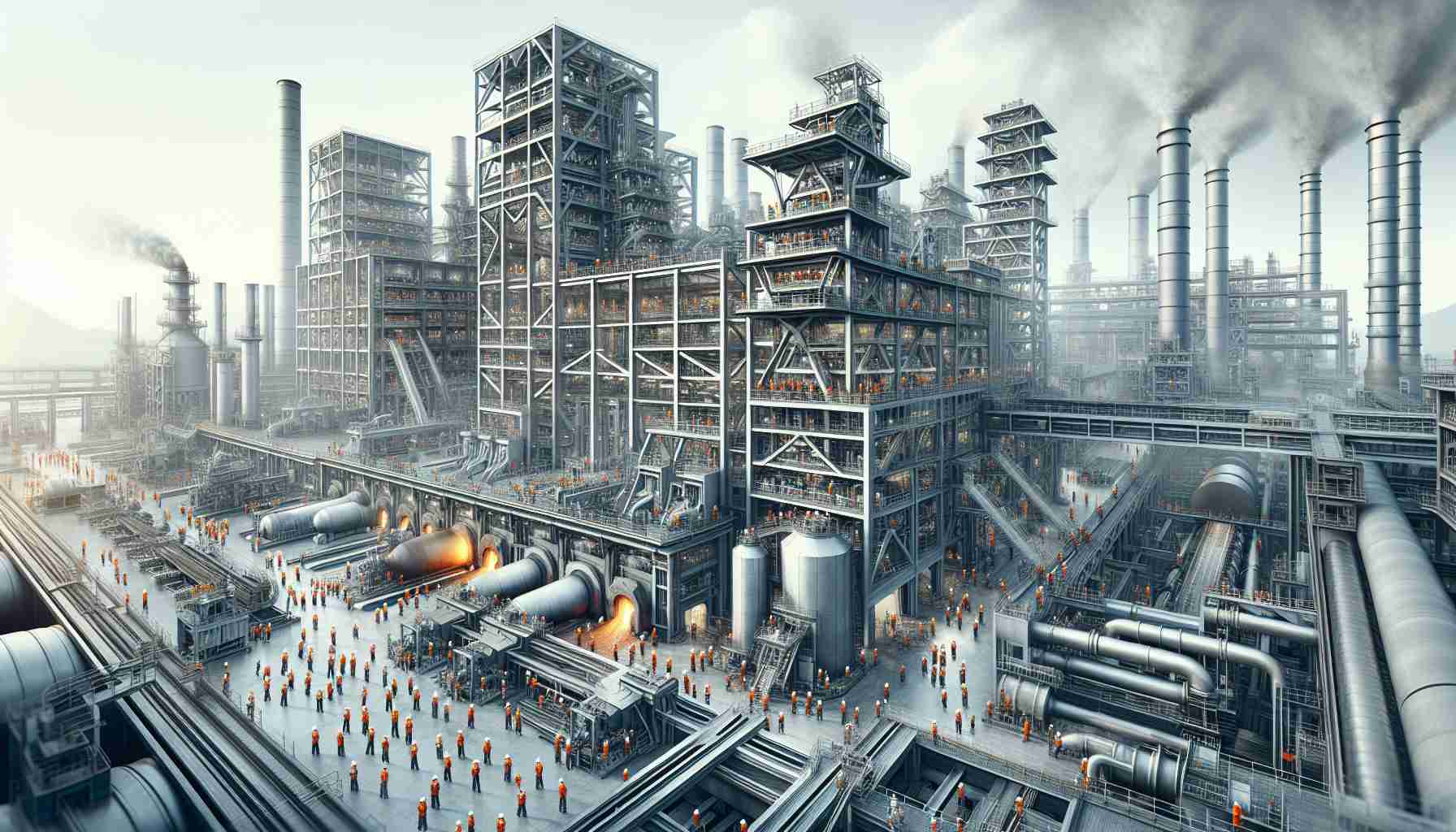A groundbreaking shift is underway in the Brazilian steel industry as a leading company embarks on a new era of production innovation. With a substantial investment of 2 billion Reais, a state-of-the-art cold mill complex project has been launched to boost the production of cold-rolled, galvanized, and Galvalume coils.
The ambitious project will introduce cutting-edge technology by manufacturing Magnelis, a unique steel coil coated with zinc, aluminum, and magnesium. This marks a significant milestone as it will be the company’s first plant outside of Europe to produce this advanced material.
The upgraded plant’s capacity has surged from 1.6 million to 2.2 million tonnes annually, signifying a remarkable escalation in output. This move is not just about expanding production but also about reshaping the market dynamics by prioritizing domestic sales over exports. By shifting the focus to value-added products for the local market, the company aims to establish a stronger foothold in the industry.
In parallel with expanding its domestic presence, the company is exploring opportunities to introduce Magnelis steel to other Latin American regions in response to growing market interest. This strategic decision underscores the company’s commitment to meeting evolving market demands and fostering regional trade partnerships for mutual growth.
Environmental sustainability is also at the forefront of this transformative initiative. The new plant boasts eco-friendly technologies, including natural gas, hydrogen, and nitrogen, aligning with global efforts to reduce carbon footprint. Moreover, Magnelis’s durability in diverse environments, such as solar farms and silos, contributes to the steel industry’s decarbonization goals.
Through these game-changing advancements, the Brazilian steel sector is set to witness a paradigm shift that not only enhances production capabilities but also sets a new benchmark for sustainable and innovative steel manufacturing practices.
Revolutionizing Steel Production in Brazil: Unveiling Key Insights
Amidst the revolutionary developments in the Brazilian steel industry, certain critical aspects and questions beg exploration to grasp the full scope of this transformation.
What potential industrial implications does the introduction of Magnelis steel hold?
The introduction of Magnelis steel, with its exceptional coating of zinc, aluminum, and magnesium, not only enhances the quality of steel products but also opens up new avenues for applications in sectors requiring heightened corrosion resistance. This move could potentially redefine the standards for steel performance in demanding environments, such as construction, automotive, and infrastructure.
What are the key challenges associated with transitioning to a more value-added product portfolio?
While the shift towards value-added products presents immense opportunities for market differentiation and revenue growth, it also poses challenges in terms of production complexity and cost management. Balancing the increased production costs of advanced materials like Magnelis with market demand and competitive pricing strategies will be crucial for long-term sustainability and profitability.
Advantages and Disadvantages of Prioritizing Domestic Sales over Exports
One of the notable advantages of focusing on domestic sales is the potential to establish a strong market presence, build brand recognition, and cater to the specific needs of local customers effectively. However, an overreliance on domestic market demand may limit the company’s exposure to international markets, potentially impacting revenue diversification and global competitiveness.
In navigating these transformative changes, it is imperative to address the key challenges and controversies that may arise:
Competition and Market Response: How will competitors react to the company’s advancements in steel production, and what strategies can be implemented to maintain a competitive edge in the market?
Sustainability Practices: While the eco-friendly technologies employed in the new plant underscore a commitment to environmental sustainability, what measures are in place to ensure ongoing compliance with stringent regulations and industry standards?
By critically examining these questions and controversies, stakeholders can gain a comprehensive understanding of the multifaceted impact of revolutionizing steel production in Brazil.
For further insights into the global steel industry and sustainable manufacturing practices, visit the official website of World Steel Association at worldsteel.org.


